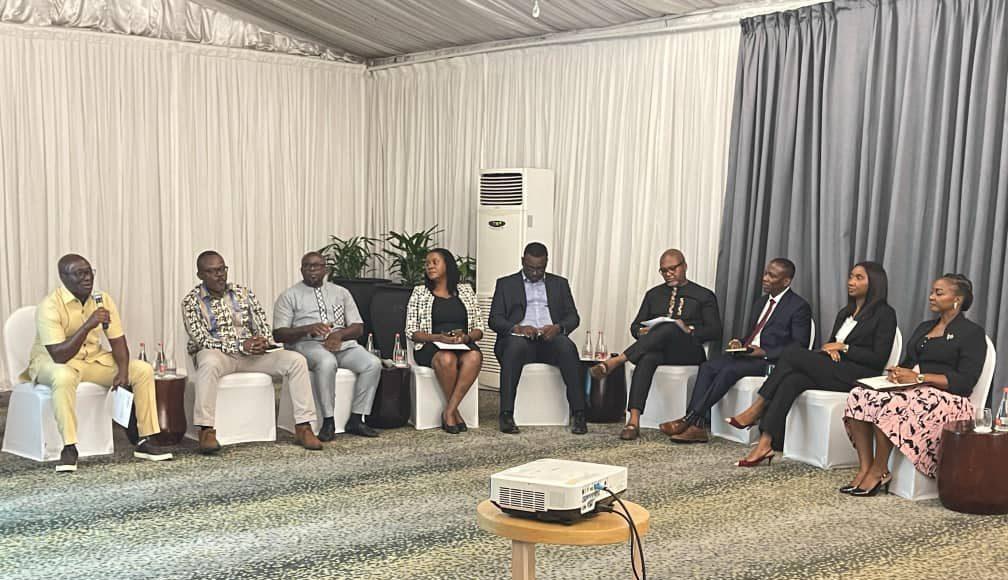Africa-Press – Ghana. Stellenbosch Business School’s Thought Leadership Panel Discussion on “Boosting Intra-African Trade and Investment: Priorities and Levers for Action” saw guest experts propose key reforms to transform intra-Africa trade.
The panel, featuring diverse expertise from investment, insurance, law, finance, academia, and digitalisation, delved into the challenges of Africa’s internal trade and the policies needed to address them.
Among the experts were Mr. Chris Wullf-Caesar, Managing Director of Unilever Ghana Plc; Professor Charls Adjasi, Professor in Development Finance at Stellenbosch Business School; Ms. Brenda Semevo Afari, Legal Counsel and Corporate Governance Consultant; and Dr. Ralph Nordjo, Director of the Africa Directorate at the Copenhagen Consensus Centre.
Other panellists included Mr. Lawrence Okine, an alumnus of the Business School; Ms. Nana Esi Idun-Arkhurst, Divisional Director for Business Banking at Fidelity Bank Ghana; Mr. Ekow Thompson, Executive Leader in Digital Innovation at Interactive Digital Limited; and Ms. Genevieve, General Manager of Enterprise Funeral Services.
Mr. Lawrence Okine called for a collective mindset shift to drive continental development.
He emphasised that Ghana’s progress was intrinsically linked to Nigeria’s and Africa’s overall growth, urging leaders to adopt a unified approach in global engagements rather than acting in isolation.
Mr. Okine noted that the African continent lagged behind in many contemporary developments, notably internet connectivity and trade.
He said Africa was currently grappling with only 50 per cent internet penetration, significantly behind continents like Europe, which streamed 95 per cent.
This situation, he noted, limited opportunities for digital payments, which were integral to cross-border transactions and intra-African trade.
Mr. Chris Wullf-Caesar, Managing Director of Unilever Ghana, stated that the Africa Continental Free Trade Agreement (AfCFTA) presented an opportune time for African countries to improve trade among themselves.
However, he highlighted that the agreement was more on paper than in practice due to the challenges of moving products from one African country to another.
He urged heads of the various countries on the continent to strengthen the protocols governing the AfCFTA agreement by ensuring the elimination of challenges such as non-tariff barriers.
Ms. Nana Esi Idun-Arkhurst highlighted the challenges faced by small businesses attempting to navigate fragmented infrastructure.
She explained how inadequate infrastructure and exorbitant transportation costs were stifling economic potential and hindering the continent’s youth from leveraging digital opportunities.
She called for robust infrastructure, including digital connectivity and efficient and affordable transportation, to facilitate the movement of goods and services across the continent.
For More News And Analysis About Ghana Follow Africa-Press







